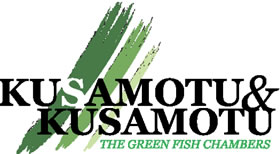The primary objective is to create a single continental market for trade in goods and services on the continent for the purpose of achieving a comprehensive and mutually beneficial trade agreement among the Member States of the African Union. The negotiation comprises of two (2) stages; Stage 1 would cover trade in goods and services while Stage 2 would cover intellectual property, investment and competition.
The AfCFTA is the first step in the implementation of Agenda 2063 of the African Union. This Agenda was adopted by the AU in 2015. Agenda 2063 presents a shared African strategic framework for inclusive growth and sustainable development. The vision is for “an integrated, prosperous and peaceful Africa, driven by its own citizens and representing a dynamic force in the international arena.”
BENEFITS OF THE AfCFTA
- Re-organizing the geo-economic landscape of Africa and shedding the inheritance of a divided continent and fragmented markets.
- Create jobs in huge numbers that would prepare Africa for about 11million youth that enter its job market every year.
- Establishment of an economic and trade governance structure that will modernize Africa’s economy and put it on a surer footing within the global market.
- Eliminating tariffs and in doing so the CFTA can boost Intra-African trade by 52%
- Reduce non-tariff barriers. This will contribute $22 billion to African welfare in which Nigeria would be among the top 3 gainers.
- Social welfare, peace and security.
- Attract more foreign direct investment (FDI) to support African infrastructure development and increase productivity.
- Support diversification, value addition and structural transformation.
- Improve urgently required agricultural trade and contribute to food security.
- It will curb the issue of Africans risking their lives in search of better opportunities abroad.
Nigeria is a leader in the negotiations to establish the AfCFTA with Ambassador Chiedu Osakwe as Nigeria’s Chief Trade Negotiator, chairing the 55-member Negotiating Forum for the CFTA (CFTA-NF). Nigeria remains deeply committed to the process of negotiating the CFTA. A national AfCFTA sensitization workshop will be initiated in 2018. These workshops will include, MDAs, industry associations, civil societies and dedicated enterprise briefings.
The AfCFTA negotiations are now scheduled for conclusion and for AU Heads of State and Government to sign the Agreement to launch the AfCFTA in Kigali, Rwanda, on 21 st March 2018.
